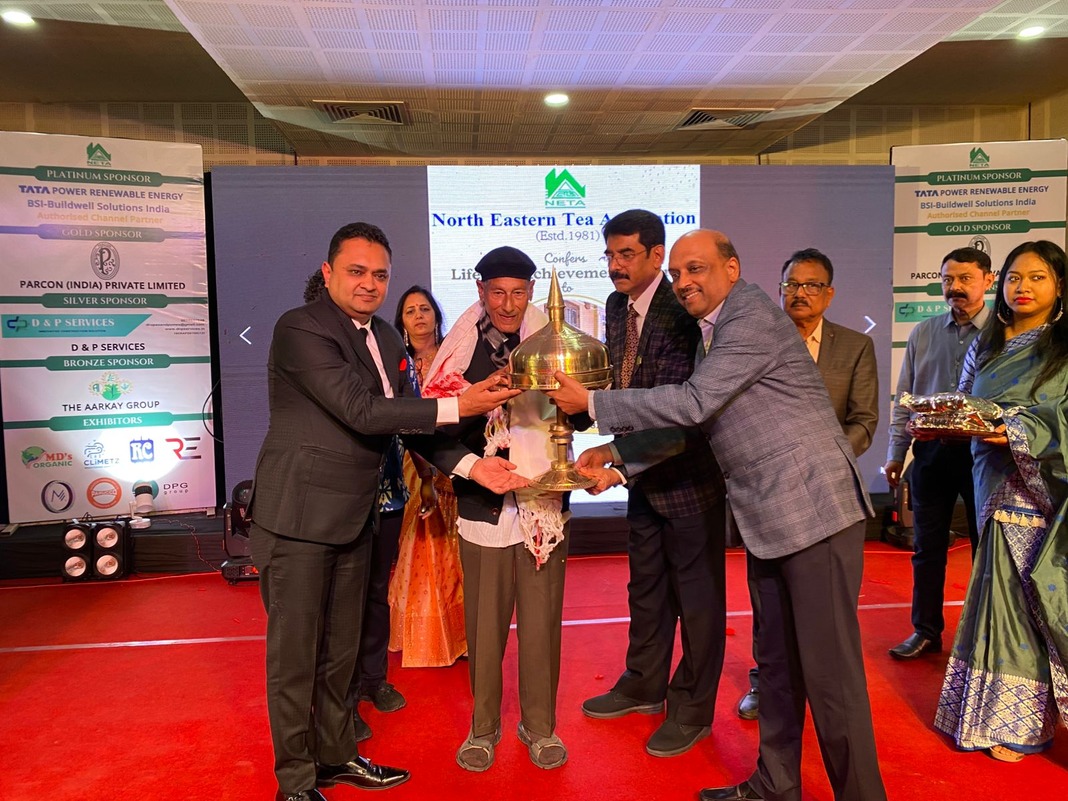Guwahati, Feb 11: The North Eastern Tea Association (NETA) has urged the Assam government to amend its Solar Policy to better accommodate the tea industry’s seasonal nature.
Speaking at the Chairman’s Dinner on February 8 in Golaghat, NETA chairman Ajay Dhandharia emphasized that tea production remains dormant from December to February, with minimal output in March. However, solar plants installed at tea factories continue generating power, leading to excess energy being injected into the grid without financial compensation.
“As per the current Solar Policy, no payment is made for excess energy injected into the grid beyond 90% of the energy consumed from the grid in a billing cycle,” Dhandharia stated. “Additionally, there is no provision to carry forward the unused energy for adjustment in the peak production months,” he said.
Dhandharia highlighted that the inability to monetize surplus solar power prolongs the return on investment for tea factories, discouraging further adoption of renewable energy. NETA has called on the state government to amend the policy so that the surplus energy generated during off-season months can be remunerative, encouraging more solar installations across the industry.
Dhandharia also proposed switching from Exim Metering to Net Metering for Assam’s tea factories. Under the current Exim Metering system, the industry pays ₹10.00 per KWH for grid electricity but receives only ₹5.33 per KWH for energy exported to the grid during the daytime. This pricing discrepancy significantly extends the payback period for solar investments.
Providing an example, he illustrated that under Net Metering, the billing amount would be substantially lower compared to Exim Metering, leading to significant cost savings for tea factories. “The difference between these two metering systems makes a huge financial impact on the tea industry,” he said.
Beyond energy concerns, Dhandharia stressed the need to boost domestic tea consumption. He cited a study by BDO India LLP, which found India’s per capita tea consumption to be 840 grams—including non-tea drinkers. NETA’s new mission, ‘Mission 1 Kilo,’ aims to increase per capita consumption to 1 kg, which, if achieved, could resolve many challenges facing the tea industry.
“For the first time, the Central government has allocated funds for domestic tea promotion. Now, we need to attract young consumers by marketing tea as a wellness and lifestyle beverage,” he said. Dhandharia also encouraged state governments and the tea industry to contribute to promotional efforts to amplify the impact.
Dhandharia further highlighted growing competition from other tea-producing countries such as Kenya, Bangladesh, and Nepal. He noted that while India remains the largest producer and consumer of black tea, price fluctuations and increased imports have led to market uncertainty.
“The tea industry suffered significant losses due to low prices in late 2024, despite strong early-season gains,” he said. He advocated for allowing tea producers to choose their preferred mode of sale—auction or private—stating that concerns over transparency in private sales were unfounded.
Addressing agricultural challenges, Dhandharia pointed out that pests like Green Fly and Helopeltis, along with diseases such as Fusarium, pose a serious threat to tea crops. Continuous exposure to certain pesticides has led to resistance, making existing solutions ineffective. He urged the government to include more economically viable and effective chemicals in the Plant Protection Code (PPC).
Dhandharia also noted the acute labor shortage faced by Small Tea Growers (STGs) during peak harvest periods. To overcome this, some STGs have resorted to sickle harvesting, which compromises tea quality and ultimately affects pricing.
On a larger scale, the NETA chairman called on the Central government to officially recognize tea as the National Drink of India. Highlighting the recent US FDA recognition of tea as a ‘healthy’ beverage, he emphasized the need to promote tea’s health benefits through social media and public campaigns.
“Scientific research has shown that tea helps regulate cholesterol, reduces blood triglycerides, and provides cardiovascular benefits,” he said. The NETA chairman also cited a 2023 study published in the Indian Journal of Medical Research, which linked regular tea consumption with lower COVID-19 severity and mortality rates in India compared to Western nations.
Dhandharia concluded by urging the Assam government to implement key policy changes that would help the tea industry lower production costs while promoting clean energy.
His recommendations included introducing Net Metering for tea factories to make solar energy investments more viable.
He also advocated for shifting from monthly to yearly billing cycles, given the seasonal nature of tea production.
He also suggested for encouraging tea consumption as a wellness beverage through structured promotion campaigns.
With NETA completing 44 years of service to the tea industry, he reaffirmed the association’s commitment to strengthening Assam’s tea sector while embracing sustainable energy solutions and boosting domestic consumption.




